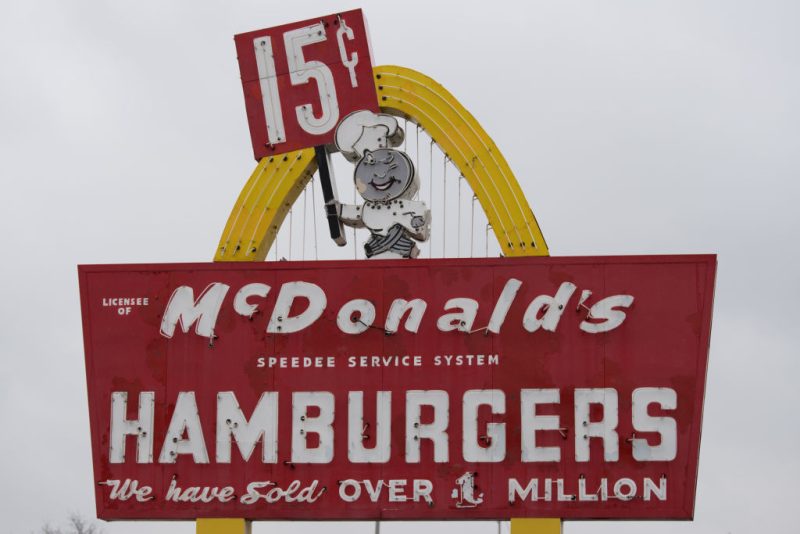When McDonald’s first started flinging patties back in the 1940s, you could feed a family for under $1. But you could do a lot with a dollar back then. Amid complaints that McDonald’s has grown too expensive, we calculated what the prices on early McDonald’s menus from 70 years ago would be today, adjusted for inflation.
For starters, your options were more limited back in the day. One menu, which McDonald’s told Nexstar dates back to the mid-to-late 1950s, shows only nine items available for sale, and most of them are drinks.
At the time, a “pure beef hamburger” cost 15 cents, a “tempting cheeseburger” cost 19 cents, and “golden french fries” were 10 cents. After about 70 years of inflation, those prices come out to about $1.76 for a hamburger, $2.23 for a cheeseburger, and $1.17 for fries in 2024 dollars.
How does that compare to actual McDonald’s prices in 2024? It depends on exactly where you place your order.
At the longest-operating McDonald’s in the country, found in the Southern California city of Downey, prices are higher: $2.79 for a hamburger, $2.99 for a cheeseburger, and $3.89 for fries.
But prices today can vary significantly by location. The first location opened by CEO Ray Kroc was in Des Plaines, Illinois, in 1955. That exact location isn’t open anymore, but other franchises in Des Plaines have prices lower than in California – $1.99 for a hamburger, $2.19 for a cheeseburger and $3.29 for french fries. When taking inflation into account, all those prices are still higher than the 1950s McDonald’s prices, but the gap isn’t as large.

However, there are some locations that have beat inflation. The McDonald’s in Stigler, Oklahoma, is said to be the cheapest in the nation. There you can find a burger for just $1.29. Adding cheese makes it $1.49, and a side of fries sets you back $2.29.
In all cases, it’s the fries whose price changes have far outpaced just standard inflation. What used to be one of the cheapest items on the menu now costs more than plain burgers (but still less than Big Macs and Quarter Pounders).
McDonald’s leadership recently acknowledged the company needs to refocus on affordability after years of relentless inflation. Prices across the fast food industry have risen dramatically in the last few years due to a variety of factors, including elevated costs for labor, food and paper products. In some areas, franchise owners have complained minimum wage hikes have forced them to bump up menu prices.
Between the first quarter of 2022 and the first quarter of 2024, the amount spent per person per visit at a U.S. fast food restaurant rose 25%, from $12 to $15, according to Technomic, a restaurant data firm.
As a temporary relief to customers, McDonald’s said it plans to introduce a $5 meal deal in the U.S. next month.
The deal lets customers get a four-piece McNugget, small fries, a small drink and either a McDouble burger or a McChicken sandwich for $5 in most areas, according to a person familiar with the deal who wasn’t authorized to discuss its details.
The month-long deal is scheduled to begin June 25 and will be advertised nationally. Some stores with higher costs, like those in California or Hawaii, may charge more, the person told The Associated Press.
The Associated Press contributed to this report.











